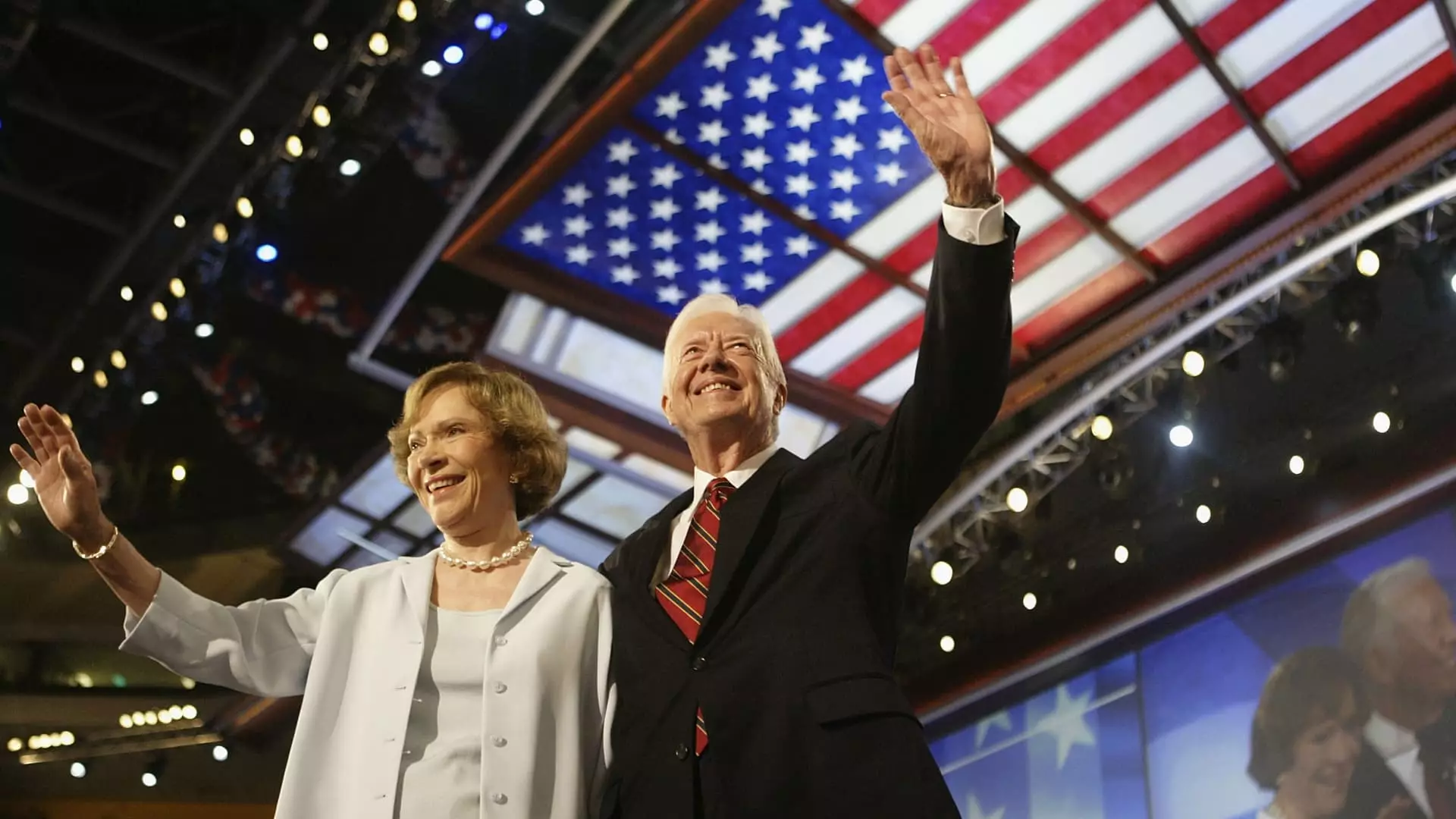In the wake of former President Jimmy Carter’s passing, leaders from both major political parties in the United States swiftly came together to honor his impactful life. The confirmation of Carter’s death sparked a moment of reflection and shared respect among political figures who often found themselves at odds over policy but united in their admiration for Carter’s spirit of service. Senate Majority Leader Chuck Schumer, a Democrat from New York, expressed that “President Carter’s faith in the American people and his belief in the power of kindness and humility leave a strong legacy.” His words encapsulated a sentiment echoed by many across the nation, showcasing a rare moment of bipartisan agreement.
Republican stalwart Mitch McConnell also chimed in, offering a vivid metaphor regarding Carter’s roots, saying, “Carter’s character and commitment, just like his crops, were fruits of all-American soil.” McConnell’s appreciation for Carter’s tireless dedication to public service revealed an acknowledgment of the former president’s relentless pursuit of betterment for the common good, not only during his presidency but throughout his life.
Former President Bill Clinton and Hillary Clinton contributed to the collective mourning, highlighting how they sustained a strong rapport with Carter, even during challenging political times. Bill’s heartfelt reflection on presenting the Medal of Freedom to Jimmy and his wife Rosalynn, alongside their acknowledgment of Carter as a model of humanitarianism, served to enrich the narrative of Carter’s enduring influence. This sentiment resonated deeply, reinforcing the notion that true leadership transcends party lines.
Current leaders from the House of Representatives also expressed their condolences, with House Majority Leader Steve Scalise recognizing Carter’s lifetime of service, while Democratic Leader Hakeem Jeffries referred to him as a “great man, a great role model and a great humanitarian.” Their words reinforced how Carter’s devotion extended beyond the confines of partisan politics, reflecting a greater commitment to humanity.
Carter’s legacy was not only shaped during his presidency but also considerably during his post-presidential years. He became an emblem of humanitarian efforts, showcasing how leadership does not end with political tenure. The establishment of the Carter Center stands as a testament to his unwavering commitment to human rights and the alleviation of suffering worldwide. It is a legacy that affirms the idea that political figures can shift their focus towards humanitarian work, demonstrating that once-in-office positions can catalyze lifelong missions of service.
Further solidifying his commitment to community, Carter’s involvement with Habitat for Humanity illustrated his hands-on approach to alleviating social issues. Political figures reflecting on this aspect, such as Senator Mike Lee, emphasized that Carter’s post-presidential work—building homes and teaching Sunday school—became the hallmark of an extraordinary leader who genuinely cared about improving lives. This duality of his legacy allows us to view him not merely as a politician but as a servant committed to enhancing community welfare on every level.
The turbulent political climate of the current era starkly contrasts with the unifying respect afforded to Carter posthumously. Senators and representatives took to social media to lament the loss of a leader whose ethos was anchored in an unshakeable faith and commitment to service. Senators like Mark Warner and Andy Kim expressed that Carter’s legacy would be measured by his commitment to public service, philanthropy, and community development.
In a world where political factions often divide, Carter’s life serves as a poignant reminder of virtues such as kindness, humility, and a genuine passion for community upliftment. Senators have highlighted how his teachings, drawn from his Christian faith, resonate even today, emphasizing that political differences pale in comparison to shared values of love and community service.
The admiration for Jimmy Carter is reflective not only of his accomplishments during his presidency but also of his relentless humanitarian efforts that have inspired generations. As tributes continue to pour in from leaders of all political stripes, it is imperative to take a moment to cherish the legacy left behind—a call to elevate our shared humanity above our individual political affiliations. Carter’s life offers a profound lesson on the power of service and devotion to others, a lesson we can all learn from as we engage in our own communities and work toward a more compassionate world.

Leave a Reply